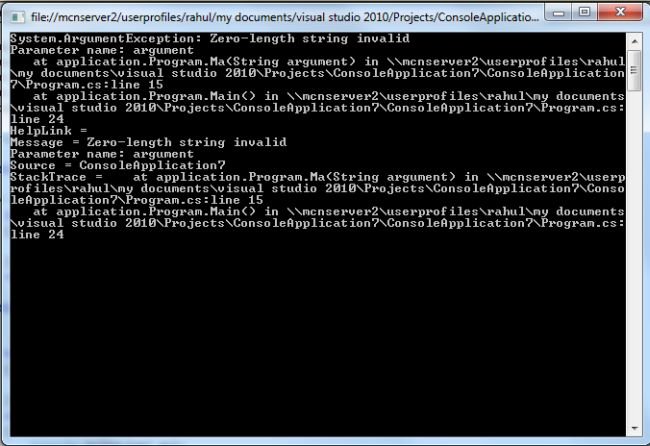ArgumentException in .NET
In this article we will explain how we can handle the ArgumentException in .NET.
Introduction
ArgumentException is thrown when one of the arguments provided to a method is not valid .Computers can't handle this situation without using exception handling so its gives an error or Exception.
Example
using System;
using System.Collections.Generic;
using System.Linq;
using System.Text;
namespace application
{
class Program
{
static int Ma(string argument)
{
// Handle invalid argument.
if (argument.Length == 0)
{
throw new ArgumentException("Zero-length string invalid", "argument");
}
return argument.Length;
}
static void Main()
{
// using try and catch block
try
{
Ma("");
}
catch (Exception ex)
{
Console.WriteLine( ex);
Console.WriteLine("HelpLink = {0}", ex.HelpLink);
Console.WriteLine("Message = {0}", ex.Message);
Console.WriteLine("Source = {0}", ex.Source);
Console.WriteLine("StackTrace = {0}", ex.StackTrace);
}
Console.ReadLine();
}
}
}
The output of following program

ArgumentNullException and ArgumentOutOfRangeException is the derived class from ArgumentException.